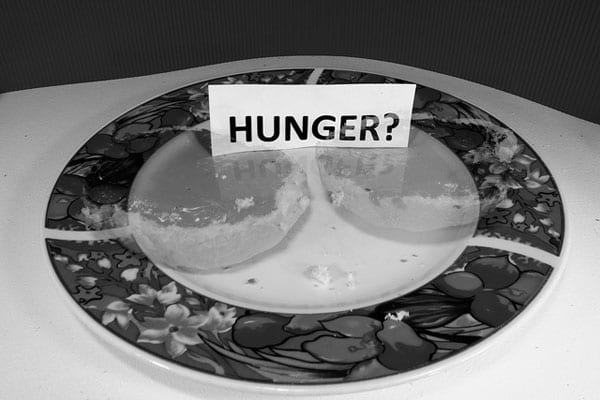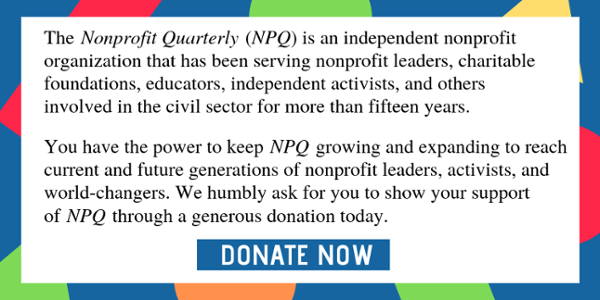
December 4, 2018; Generocity
According to Hunger Free America’s 2018 United States Hunger Atlas, one in eight Americans, representing 12.3 percent of the population, are food insecure, meaning they are unable to afford a consistent supply of food throughout the year. While this is startling enough, when looking at racial and ethnic disparities, the story is far more concerning, and reveals a direct connection between discrimination and food insecurity.
Many nonprofits address food insecurity programmatically by delivering services that alleviate hunger. However, programs and services aren’t enough. Nonprofits must diligently work to understand the dynamics of systemic racism and the impacts it has on communities of color, including the implications racism has on the incidence of food insecurity. This understanding is the basis of, and is essential to, dismantling systems that perpetuate inequality. Nonprofits interested in expanding their perspective on the connection between discrimination and food insecurity can review five reports released last week by Drexel University’s Center for Hunger-Free Communities, a Philadelphia-based research, service, advocacy, and policy center whose goal is developing innovative, empirically-tested solutions to the challenges of hunger and economic insecurity.
This series, entitled “From Disparities to Discrimination: Getting at the Roots of Food Insecurity in America,” places discrimination into a contemporary context and looks at disparities and discrimination in Philadelphia. Basing research in Philadelphia is in part because of the location of the Center for Hunger-Free Communities, but also because the reality of food insecurity in the city: 302,685 people, or 18.3 percent of the population, experienced food insecurity between 2015–17, representing an increase of 22 percent over the past six years. This is coupled with a high poverty rate of over 25 percent and, more broadly, with limited access to healthy foods, as is reflected in the city having the highest proportion of residents with diabetes of any big city in America.
Drawing on the research expertise of Children’s HealthWatch, a nonpartisan network of pediatricians, public health researchers, and children’s health and policy experts, each report in the series explores the dynamics of discrimination in various settings, and its impact on food insecurity. Specifically, the reports focus on four major areas: schools and workplaces; housing, public assistance, and healthcare; streets, public settings and judicial systems; and disparities in household food insecurity by immigration, race, and ethnicity. A major finding of the research is that people who experienced discrimination firsthand struggled with hunger twice as often as others, regardless of when—or where—that discrimination occurred. The takeaway is that someone who experiences racism and discrimination is more likely to be food insecure.
Sign up for our free newsletters
Subscribe to NPQ's newsletters to have our top stories delivered directly to your inbox.
By signing up, you agree to our privacy policy and terms of use, and to receive messages from NPQ and our partners.
In addition to detailing the connection between discrimination and food insecurity, each report discusses potential solutions. While not exhaustive, here are some of the ones discussed in the series:
- Discrimination in Education. Train education professionals in implicit bias and hold schools accountable by tracking student outcomes based on race and ethnicity.
- Employment and Wages. Ensure that hiring practices focus on fair processes and equal pay for men and women and that anti-discrimination policies in hiring and in workplace settings are properly enforced.
- Housing. Strengthen and enforce the Fair Housing Act of 1964, which aims to protect renters and home buyers from discrimination based on race, ethnicity, gender, ability, and religion.
- Healthcare. Train all health professionals in implicit bias, support doctors and medical researchers of color, and hold hospitals accountable by tracking patient outcomes based on race and ethnicity.
- Police. End the criminalization of minor offenses that are often used to police people of color such as marijuana possession, disorderly conduct, trespassing, loitering, and jaywalking.
- Nonprofits. Identify the social and economic and systems that cause poverty and food insecurity. Investigate root causes—and not simply call poverty a root cause—in all research on disparities in food insecurity and poor health among children and families in the US.
The need to explore solutions and understand the various ways that racism plays out in society is important to shifting systems. It’s also something NPQ covers regularly. Last week, for example, NPQ had a newswire discussing how racism costs black families hundreds of billions in housing wealth, detailing a new study by the Metropolitan Policy Program at the Brookings Institution that found that neighborhoods with high levels of black homeownership are penalized. Last month, NPQ had an article examining the question “What if we treated bigotry as a public health concern?” through a paper exploring hatred being conceptualized as an infectious disease leading to the spread of violence, fear, and ignorance. Finally, NPQ has an Equity, Diversity, and Inclusion Series on its homepage and currently is hosting a series of webinars on Remaking the Economy: a Guide to Nonprofit Roles and Tools that discusses strategies and tools for creating an economy that works for everyone.
Ultimately, nonprofits must confront racism and recognize the expansive deleterious impacts it has on communities of color. As Mariana Chilton, Professor at Drexel University School of Public Health, Co-Principal Investigator of Children’s HealthWatch and the Director of the Center for Hunger Free Communities, notes, “Racism and discrimination are certainly not a sideline issue. It has continuously kept people of color in positions where they can’t make enough money.” Nonprofit programs and services that engage communities of color need to understand the dynamic interplay between racism and discrimination in multiple contexts and the downstream effects it has, not only on food insecurity, but also on people of color’s quality of life.—Derrick Rhayn














